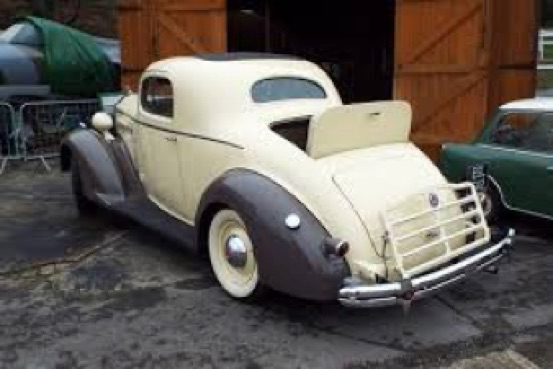Kimberley, South Africa
Kimberley Ex-Pats- Newsletter No 30


Kimberley Ex-Pats Newsletter no 30, 30 July 2020
Dear Friends
In this issue:
•Jews who died in the Boer War
•Sad death of Daphne Gillis’ husband Harry
•Kimberley Jews who served in WW2
•Mendel Apter and ‘Fresh Lemons’
I was very excited to discover there is a talk next Monday 3 August – on Zoom so we can all attend – about the magnificent brass and enamel plaque that is in the foyer of our magnificent synagogue!

Well the talk is not exactly about our plaque – but apparently there was also another one made commemorating the 114 Jewish souls who lost their lives fighting with the imperial troops in what we called the Boer War (and the Boers called ‘Die Twede Oorlog).
I wonder if this second plaque is also in brass and enamel and looks the same as ours, and if it was also commissioned by Sydney Mendelssohn? This one was affixed to the wall of the original and prestigious Central Synagogue in London (Great Portland Street). It’s apparently been lying at the Willesden Cemetery for a while and they have recently commissioned someone to try to find out about the people named on the plaque. I am really interested to know more about this familiar backdrop to the foyer of our synagogue.
If you want to join this zoom talk you can apply to do so here (it may also be archived) https://www.willesdenjewishcemetery.org.uk/events/boer-war-talk
In case you can’t read what it says it on the poster above, here is the information about the talk and how to join:
PIECING TOGETHER LOST HISTORY: JEWS IN THE SOUTH AFRICAN WAR
Join Willesden Jewish Cemetery and the Jewish Historical Society of England in remembering the Jewish fatalities of the 1899-1902 South African War. Originally displayed on the Great Portland Street side of the original Central Synagogue building, 114 Jews are remembered on two memorial boards now housed at Willesden Jewish Cemetery. But who were they?
Join Molly Maslen, volunteer researcher with the House of Life and History MA graduate, to lift the veil on this memorial following her extensive research.
Monday 3 August 2020 20:00 (UK time)
Zoom talk facilitated by Milim, Leeds book your place at:
https://www.willesdenjewishcemetery.org.uk/events/boer-war-talk
We have written about our plaque that was commissioned and donated by Sidney (or Sydney) Mendelssohn on the website in the story of Mendelsohn, Rev Meyer & his son, Sidney.
Rev Meyer Mendelssohn who served the community for six years, from 1878 to 1884. He was personally selected for the job by the then Chief Rabbi of Great Britain, Dr Adler, to replace Rev Albu in Kimberley. He made a terrific impact on the community. Born in 1833, he was distantly related to the composer and his famous grandfather the philosopher Moses Mendelssohn.
His son, Sydney created the township ‘Sydney-on-Vaal’ (named after him) where he had done very well ‘mining’ alluvial diamonds. He was a very cultured man in Kimberley and a great collector of Africana and his seminal library of Africana is housed in the South African Parliament.
And he commissioned this plaque to the fallen that is resplendent in the foyer of the shul and dedicated it not only to the soldiers who died, but to his father, and also to his daughter Ruby, who was drowned when the Drummond Castle sank off Ireland in 1896. (I have written about that disaster too on the link above)
You can read about the ministers in the Kimberley shul in our previous Newsletter 29 here: https://kehilalinks.jewishgen.org/kimberley/News_29.html
I am very excited to have discovered this talk as I know nothing about the people whose names are on the plaque. (or indeed about the many other Jews who died fighting on the side of the Boers)
Here below is a picture of our plaque. It’s the iconic three arches seen in so many pictures taken at the front door of the synagogue on our wedding gallery. (see the picture below of Daphne and Harry Gillis’s wedding in 1956.) It will be interesting to hear what this is all about.


I was saddened this week to hear about the passing of Daphne Toube’s husband Harry Gillis. They married in our Kimberley synagogue in 1956 see family weddings Volume 2.
You can clearly see the iconic three arches of the Sydney Mendelssohn plaque in this picture above of their wedding.
Harry was from Oudtshoorn and they spent a happy marriage there. They retired to Cape Town where they often entertained the Kimberley ex-pats living or visiting there. Harry lived a happy and fulfilled life and reached the age of 94. I have extended my wishes for health and strength to Trevor Toube and to Daphne Gillis.
Kimberley Jewish Service in WW2
Our Second World War Stories are nearly ready to be posted on the site. Barney Horwitz is still trying to get me some information about: Jules Katz, Goldie Mehl, Poddy Shein and Fritz Hecht? If you can contribute any information about their war service that would be very helpful.
I am making a table of those that we have featured in this story and there are now 30 people commemorated for their valour. Thank goodness they all came home again. If you spot a missing name, please supply some information.

Mendel Apter and Fresh Lemons
Here is a special story about Mendel Apter in the Royal Navy sent by his son David Apter. It was written by Mendel’s great friend, and mentee Hector Kleinot

Time 1942; place Portsmouth or Liverpool or Southampton in a dockside pub frequented by local seamen and Royal Navy sailors on shore leave. It is Saturday night again at the Safari Steakhouse Kimberley. Zorba was absorbed as usual over his hot grill in the open plan kitchen, and socially participating in several conversations at the same time.
At our table Mendel was holding forth after a couple of whisky warmers, it being a cold winters night in 1966. Mendel was a small man, and like so many small men, he liked to throw his weight around. But he was not nasty, as so many small men could be. On the contrary he was kind-hearted and simpatico. Now commanding the floor, as was his wont, he was recounting for the umpteenth time, a tale of how he became the most popular Jewish petty officer in the Royal Navy.
We had settled in Kimberley in 1963, mainly because of the opportunity Mendel gave me then to work for him. But I had not heard this story before. So, it was being told mostly for my ears.

These were the dark days of the Second World War when Britain, yes still Great Britain, stood alone against the Hun. Many ships and brave men were lost.
Thus, more by attrition than by qualification and experience, Mendel was promoted to Petty Officer. He said that as a South African his shipmates accepted him, but once they found out he was a Jew there were some who liked to belittle such a shrimp of a fellow and a Jew to boot (sometimes literally).

Mendel was pretty tough, and several black eyes later, not all his, he won a place in the 40-man crew of his frigate. There was the usual card playing and ‘crown and anchor‘ gaming aboard the frigate during off duty periods. Mendel chose not to gamble. Once he had won his place it seemed natural for the crew to appoint their ‘pet Jew’, as their banker. He, along the way, had told them that he had a scheme to make them the richest sailors ever. Mendel’s chance to test his scheme came when the frigate docked at Malta for his first time. During the usual one day’s turnaround leave he bought one hundred lemons for a pound.
‘Very clever’, said his mates, ’Do you think we also don't know that lemons are worth a pound each at home. Trouble is that by the time we get back there they shrivel and dry. No one will buy them’ ‘Yes’, answered Mendel, ‘but you fellows are not students of history, and you never heard about how Captain Cook and later Nelson carried lemons all around the world to keep the crews from getting scurvy There is a way to do it.’

There were some losses. Mendel was torpedoed twice, and in the somewhat flippant way he told it, loss of ship and life, seemed less important than loss of lemons. Yet there was a definite poignancy in the telling of the tale. He told of how the drowning crew was rescued by a passing ship of the same convoy they were supposed to be protecting. And occasionally of burning oil or a shark that got there first.
Then came the grisly titbit of Royal Navy tradition, older than Nelson and Drake, and invoking rituals of the Knights Nautoniers. They were the seafaring branch of the Knights Templar who guarded the sea routes to the Holy Land against the Arab Corsairs during the Crusades. These were the forerunners of the Royal Navy. He told of how a dead seaman was sewn into his hammock by the sailmaker with a cannonball behind his head. Of how in second world war times the sailmaker was replaced by a boatswain or other non-com, and how the cannonball became a twenty-pound shell. But the punch line was that the last stitch is always put through the dead man’s nasal septum, just in case he is not really dead. ‘Orrryezzz thart should quicken ‘im with a staaart’ His imitation of the Cornish seaman's accent, always good for a smile.

Recently I read ‘The Kappilan of Malta’ by Nicolas Montserrat. It is a graphic description of the siege of Malta and the brave people who eventually lifted that siege. My old friend and mentor Mendel Apter, was one of these brave men and I never realised until only the other day, on reading that novel, what a brave man he really was. Sadly, Mendel, a heavy smoker, died of lung cancer in his early fifties.
Hector R Kleinot July 2000
Kimberley Ex-Pats Newsletter no 30
Compiled by Geraldine Auerbach MBE, London 30 July 2020
Compiled by geraldine.auerbach@gmail.com
This website is managed by Eli Rabinowitz
Updated August 2020
Copyright © 2020 Eli Rabinowitz


